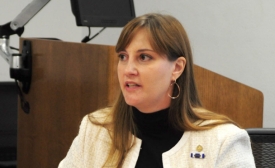afghanistan
A proposed new Afghanistan-Iran university to undertake joint research and engineering projects, announced by the two governments last month, is being seen as part of a broader Iranian strategy to counter its international isolation brought about by Western economic sanctions over its nuclear programme. Collaboration in higher education, research and science is a key part of Iran’s ‘soft power’ strategy, with a large number of cross-border projects in the pipeline, in particular in Islamic countries
When the Taliban blasted the famous Bamiyan Buddhas with artillery and dynamite in March 2001, leaders of many faiths and countries denounced the destruction as an act of cultural terrorism. But today, with the encouragement of the American government, Chinese engineers are preparing a similar act of desecration in Afghanistan: the demolition of a vast complex of richly decorated ancient Buddhist monasteries.
Recently, Beijing has launched what Joshua Kurlantzick deems a “charm offensive”- China’s rising soft power. In the quest for closer relations and natural resources, China has begun to transform the world balance of power.
Afghanistan is an ideal springboard and battleground for the spread of Saudi Sunni Wahhabism and Iranian Shiite fundamentalism throughout Central Asia; especially out towards the former Soviet breakaway nations that are hungry for any teaching necessary to fill the failed Bolshevik indoctrination vacuum; especially any form of Islam.
US director for Afghan-Pakistan public diplomacy Eileen M O’Conner called on Minister for Information and Broadcasting Qamar Zaman Kaira on Tuesday. They discussed matters of mutual interest, particularly cooperation in the field of media that played role as opinion maker.
Inaugurated in July 2012, the sprawling grounds of the Quaid-e-Azam Complex cover more than 26 acres of land that once belonged to the British Legation in Kabul. Today it may well be Pakistan’s busiest diplomatic mission. On any week day (from Sunday to Thursday) one is likely to find thousands of Afghans queuing up outside the Pakistan Embassy for a visa.
Cynthia L. Hogle, an advocate for women in Afghanistan, discussed her work at a seminar Wednesday hosted by the USC Center on Public Diplomacy. Hogle undertook projects to improve the lives of Afghan women in Maiwand, a village in the Taliban’s home province of Kandahar.

The USC Center on Public Diplomacy was pleased to host Cynthia L. Hogle, International Advisor to the Afghanistan World Foundation and member of the American Support for Afghanistan board.







